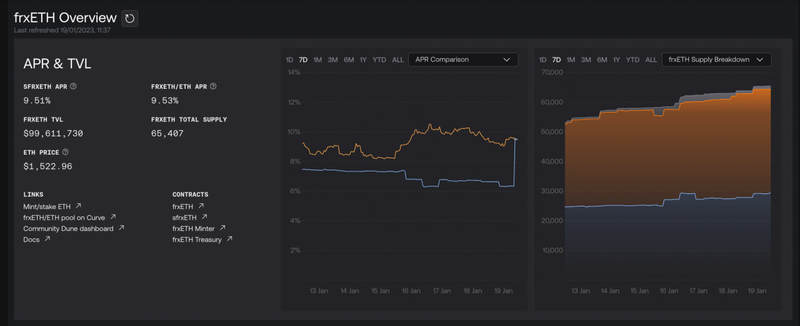You are here:Aicha Vitalis > block
Hashcat Crack Bitcoin Wallet: A Comprehensive Guide to Secure Breaches
Aicha Vitalis2024-09-20 21:40:48【block】7people have watched
Introductioncrypto,coin,price,block,usd,today trading view,In the digital age, cryptocurrencies have gained immense popularity, with Bitcoin being the most wel airdrop,dex,cex,markets,trade value chart,buy,In the digital age, cryptocurrencies have gained immense popularity, with Bitcoin being the most wel
In the digital age, cryptocurrencies have gained immense popularity, with Bitcoin being the most well-known and widely used. As the value of Bitcoin continues to soar, so does the need for robust security measures to protect digital wallets. One of the most powerful tools in the arsenal of security professionals and hackers alike is Hashcat, a versatile password cracking tool. This article delves into the intricacies of using Hashcat to crack Bitcoin wallets, offering insights into the process and the potential implications.
Hashcat is a widely respected password cracking tool that supports numerous hash types, including those used in Bitcoin wallets. By leveraging its capabilities, individuals can attempt to uncover the private keys or passwords associated with Bitcoin wallets, thereby gaining unauthorized access to the funds. However, it is crucial to understand that attempting to crack Bitcoin wallets without permission is illegal and unethical. This guide is intended for educational purposes only.
The first step in using Hashcat to crack a Bitcoin wallet is to gather the necessary information. This typically includes the wallet's public key, which can be obtained from the wallet's address. The public key is a unique identifier for the wallet and is used to verify transactions. Once you have the public key, you can proceed to the next step.

The next step involves generating a hash of the potential password using the same algorithm that the Bitcoin wallet uses. This is crucial because Hashcat operates by comparing hashes, not actual passwords. By generating a hash of the potential password, you can then use Hashcat to attempt to match it against the hash of the Bitcoin wallet's private key.
To use Hashcat, you will need to install the software on your system. Hashcat is available for various operating systems, including Windows, Linux, and macOS. Once installed, you can begin the cracking process by following these steps:

1. Generate a hash of the potential password using the same algorithm as the Bitcoin wallet.

2. Open Hashcat and specify the hash type you are targeting.
3. Enter the generated hash into the tool.
4. Choose an appropriate attack mode, such as brute-force or dictionary attack, depending on the complexity of the password.
5. Set the appropriate rules or masks for the brute-force attack, if applicable.
6. Start the cracking process and monitor the progress.
Hashcat crack Bitcoin wallet can be a time-consuming process, especially if the password is complex or if the hash is well-protected. However, with the right combination of hardware and software, it is possible to crack even the most secure Bitcoin wallets.
It is important to note that while Hashcat can be a powerful tool for cracking Bitcoin wallets, it is not foolproof. There are various security measures that can be implemented to protect Bitcoin wallets, such as using strong passwords, enabling two-factor authentication, and keeping the wallet software updated. Additionally, some wallets may use more advanced cryptographic techniques that can make them more resistant to cracking attempts.
In conclusion, Hashcat crack Bitcoin wallet is a powerful tool that can be used to attempt to uncover the private keys or passwords associated with Bitcoin wallets. However, it is essential to use this tool responsibly and ethically, as attempting to crack Bitcoin wallets without permission is illegal and unethical. By understanding the process and the potential implications, individuals can make informed decisions about their use of Hashcat and other password cracking tools.
This article address:https://www.aichavitalis.com/crypto/89d21299698.html
Like!(54494)
Related Posts
- Bitcoin Price Today GBP: A Comprehensive Analysis
- Can I Use Bitcoin to Buy a House?
- Factors Influencing Bitcoin Price: A Comprehensive Analysis
- Bitcoin Mining Info: The Ultimate Guide to Understanding the Process
- Bitcoin Mining Setup Computer: A Comprehensive Guide
- Can You Buy Property in Dubai with Bitcoin?
- How to Transfer Binance US to Trust Wallet: A Step-by-Step Guide
- Bitcoin Mining Difficulty: The Key to Ensuring Security and Fairness in the Cryptocurrency Network
- Does Ethereum Price Follow Bitcoin?
- Exxonmobil Bitcoin Mining: A New Frontier for the Energy Giant
Popular
Recent

Bitcoin Share Price in USD: A Comprehensive Analysis

Best Mining Websites for Bitcoin: Your Ultimate Guide to Finding the Best Bitcoin Mining Platforms

Check Balance in Bitcoin Wallet: A Comprehensive Guide

Low Cap Coins on Binance: A Comprehensive Guide to Investing in Undervalued Cryptocurrencies

Binance Smart Chain Metamask Extension: A Game-Changer for Crypto Users

The Rise of Uni Crypto Binance: A Game-Changer in the Blockchain Ecosystem

How to Buy Dent on Binance: A Comprehensive Guide

How to Withdraw IOTA from Binance: A Step-by-Step Guide
links
- Top Bitcoin Wallets in Nigeria: A Comprehensive Guide
- How to Turn Bitcoin into Cash Reddit: A Comprehensive Guide
- How to Transfer Bitcoins from Wallet Exchanges
- How to Withdraw Money from Binance to Bank Account: A Step-by-Step Guide
- Bitcoin Cash P2SH Redeem Script: A Comprehensive Guide
- Is Bitcoin Mining Bad for Your GPU?
- How to Log in Bitcoin Wallet: A Step-by-Step Guide
- 2019 Bitcoin Price Chart: A Year of Volatility and Hope
- Ledger's Bitcoin Cash: A Secure and User-Friendly Cryptocurrency Solution
- Dogecoin Price Prediction After Bitcoin Halving Today: What to Expect?